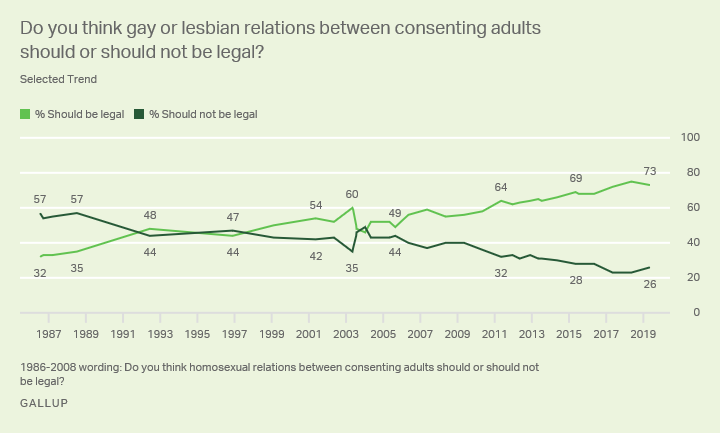Relocating To Spain: Different Paths For Two Americans

Table of Contents
The Retirement Route: A Relaxed Approach to Relocating to Spain
For many Americans, retirement represents the perfect opportunity to relocate to Spain. This path, while seemingly relaxed, requires careful planning and understanding of specific regulations.
Visa Requirements for Retirees: Navigating the Non-Lucrative Visa
The Non-Lucrative Visa is the most common route for retirees relocating to Spain. Eligibility hinges on demonstrating sufficient passive income to support yourself without working in Spain. This typically involves proving you have enough savings, pensions, or other regular income streams to cover your living expenses.
- Eligibility Requirements: You'll need to show proof of sufficient funds (usually around €27,000 per year for a single applicant and €35,000 for a couple, though this can vary). Bank statements, pension documents, and other financial records are vital.
- Private Health Insurance: Comprehensive private health insurance is mandatory. Several international insurers offer policies that meet Spanish requirements. Ensure your chosen policy covers emergency medical expenses, hospitalization, and repatriation.
- Application Process: The application process involves submitting a detailed application form, along with supporting documents like proof of income, health insurance, and a criminal record check. Processing times can vary, so it's crucial to begin the process well in advance of your intended move.
- Documents Needed:
- Valid passport
- Completed application form
- Proof of sufficient funds
- Private health insurance policy
- Criminal record check
- Proof of accommodation in Spain (rental agreement or property purchase documentation)
Finding Your Perfect Spanish Retirement Haven: Choosing Your Location
Spain offers a diverse range of retirement destinations, each with its own unique charm and appeal.
- Popular Locations: The Costa Blanca, with its beautiful beaches and affordable properties, is a popular choice, as is Andalusia, renowned for its warm climate and Moorish heritage. The Canary Islands also attract retirees seeking year-round sunshine.
- Property Purchase: Buying a property in Spain can be a complex process, so seek legal assistance from a reputable solicitor experienced in Spanish property law. Be prepared for various taxes and fees associated with property purchases.
- Affordable Accommodation: While property prices vary across regions, careful research and planning can help you find affordable yet comfortable accommodation that meets your needs and budget. Consider exploring smaller towns or villages for potentially lower costs.
- Factors to Consider:
- Climate: Do you prefer hot summers and mild winters or a more temperate climate?
- Proximity to Amenities: Consider access to healthcare, shopping, and social activities.
- Community: Do you prefer a lively, bustling community or a quieter, more rural setting?
Integrating into Spanish Culture as a Retiree: Embracing the Local Lifestyle
Relocating to Spain isn't just about finding a new home; it's about integrating into a new culture.
- Learning Basic Spanish: Learning even basic Spanish phrases will significantly enhance your experience. Many online resources and local language schools offer courses tailored to retirees.
- Joining Local Clubs and Groups: Engaging with local clubs and groups provides opportunities to meet people, make friends, and learn more about Spanish culture. Consider joining hiking groups, book clubs, or volunteer organizations.
- Understanding Cultural Nuances: Familiarizing yourself with Spanish customs and etiquette will help you navigate social situations more smoothly.
- Activities for Retirees:
- Hiking and walking trails
- Cooking classes
- Art and pottery classes
- Volunteering opportunities
The Working Expat's Journey: Relocating to Spain for a Career
For those seeking a career change or advancement, relocating to Spain presents unique challenges and opportunities.
Securing Employment in Spain: Navigating the Job Market
Finding employment in Spain requires a proactive approach and a solid understanding of the local job market.
- Navigating the Spanish Job Market: Use online job boards and networking platforms to connect with potential employers. Learning Spanish significantly increases your chances of success.
- Visa Requirements: Work permits are typically tied to specific job offers. You'll need to obtain the appropriate visa before starting employment.
- Recognized Qualifications: Having qualifications and certifications recognized in Spain is essential. This may involve obtaining equivalency certifications.
- Job Search Strategies:
- Utilize Spanish job search websites (e.g., Infojobs, Indeed Spain).
- Network with professionals in your field.
- Attend industry events and conferences.
- Consider contacting recruitment agencies specializing in international placements.
Finding Accommodation as a Working Expat: Balancing Location and Budget
Finding suitable housing is crucial when relocating to Spain for work.
- Factors to Consider: Commute times, proximity to your workplace, and budget are key considerations.
- Housing Options: Explore options such as renting an apartment, buying a property, or sharing accommodation.
- Finding Safe Housing: Use reputable websites and rental agencies to help you find safe and suitable housing. Check references and thoroughly inspect any potential property before signing a lease.
- Housing Resources:
- Online property portals (e.g., Idealista, Fotocasa)
- Local real estate agents
- Community forums and online groups
Adapting to Spanish Work Culture: Building Professional Relationships
Understanding the Spanish work culture is vital for professional success.
- Work-Life Balance: The Spanish work culture often prioritizes a stronger work-life balance than in some other countries.
- Professional Relationships: Building strong professional relationships with colleagues is crucial. Networking is an important aspect of the Spanish work environment.
- Business Etiquette: Be mindful of Spanish business etiquette, which can differ from that of the US. Punctuality and formal communication are generally expected.
- Cultural Differences:
- Lunch breaks are typically longer in Spain.
- Relationships are often prioritized over strict adherence to rules and procedures.
- Direct communication is often preferred.
Conclusion: Making Your Spanish Dream a Reality
Relocating to Spain is a rewarding but complex undertaking. Whether you're retiring peacefully or embarking on a new career adventure, careful planning and understanding the specific requirements for your situation are crucial. This article has highlighted the distinct paths taken by two American couples, emphasizing the importance of visa applications, accommodation considerations, and cultural integration in successfully relocating to Spain. By carefully considering these aspects and researching thoroughly, you too can make your dream of relocating to Spain a reality. Begin your journey today by researching the specific visa requirements relevant to your situation and start planning your relocation to Spain.

Featured Posts
-
 Oh What A Beautiful World Willie Nelsons Latest Album Details
Apr 29, 2025
Oh What A Beautiful World Willie Nelsons Latest Album Details
Apr 29, 2025 -
 You Tubes Growing Popularity Among Older Viewers A Resurgence Of Classic Content
Apr 29, 2025
You Tubes Growing Popularity Among Older Viewers A Resurgence Of Classic Content
Apr 29, 2025 -
 Revealing The Truth About Ai Thinking A Critical Examination Of Ais Capabilities
Apr 29, 2025
Revealing The Truth About Ai Thinking A Critical Examination Of Ais Capabilities
Apr 29, 2025 -
 Pete Rose Pardon Trumps Post Presidency Plans
Apr 29, 2025
Pete Rose Pardon Trumps Post Presidency Plans
Apr 29, 2025 -
 Tylor Megill And The Mets Analyzing His Effective Pitching Techniques
Apr 29, 2025
Tylor Megill And The Mets Analyzing His Effective Pitching Techniques
Apr 29, 2025
Latest Posts
-
 Public Sector Pension Reform Addressing The Growing Financial Risk
Apr 29, 2025
Public Sector Pension Reform Addressing The Growing Financial Risk
Apr 29, 2025 -
 The Impact Of Lgbt Legal Figures On Modern Lgbtq Rights
Apr 29, 2025
The Impact Of Lgbt Legal Figures On Modern Lgbtq Rights
Apr 29, 2025 -
 Are Public Sector Pensions Putting A Strain On Taxpayers
Apr 29, 2025
Are Public Sector Pensions Putting A Strain On Taxpayers
Apr 29, 2025 -
 Supreme Court Ruling Trans Rights And Gender Critical Perspectives
Apr 29, 2025
Supreme Court Ruling Trans Rights And Gender Critical Perspectives
Apr 29, 2025 -
 Historical Lgbt Legal Figures Pioneering Lawyers And Activists
Apr 29, 2025
Historical Lgbt Legal Figures Pioneering Lawyers And Activists
Apr 29, 2025
